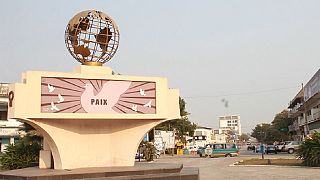Sea transport
In response to heightened security risks in the Red Sea/Gulf of Aden region, Maersk, the Danish shipping giant, announced on Friday the temporary suspension of bookings to Djibouti from several key regions, including Asia, the Middle East, Oceania, East Africa, and South Africa.
The decision impacts Maersk's Blue Nile Express service, a vital route connecting various ports.
In a statement, Maersk highlighted the ongoing volatility in and around the Red Sea/Gulf of Aden, emphasizing that all available intelligence signals a significantly high security risk.
As a precautionary measure, the company has decided to omit Djibouti, as well as Jeddah and King Abdullah Port in Saudi Arabia, from its Blue Nile Express service with immediate effect.
The Blue Nile Express typically links ports in the United Arab Emirates, Oman, India, Djibouti, and Saudi Arabia. Despite the suspension of Djibouti from its service, Maersk assured stakeholders that it does not anticipate any impact on carrying capacity.
This move by Maersk reflects the challenges posed by the complex geopolitical and security landscape in the region.
Shipping companies often adjust their routes and operations based on security assessments to ensure the safety of their vessels, cargo, and crew.





![Africa's hight cost of climate change [Business Africa]](https://static.euronews.com/articles/stories/08/77/73/84/320x180_cmsv2_065e40c7-90d8-5143-b8da-c4885db015dc-8777384.jpg)


![New era of sovereignty in Mali's gold sector [Business Africa]](https://static.euronews.com/articles/stories/08/77/73/76/320x180_cmsv2_04bbdd41-5576-5c9e-9bd3-f09c391cff64-8777376.jpg)



01:10
Spain’s left-wing government stands out on migration policy in the EU
01:11
Climate crisis takes centre stage at G20 summit in Brazil
01:26
Zimbabwe’s Climate-Smart Agriculture: Empowering Farmers through Resilience and Innovation
08:00
Exploring Algeria's maritime potential: How key ports like Annaba and Djen Djen drive growth
01:29
Political analyst says Donald Trump's win moves US to the right
01:59
Botswana’s young farmers hope new government will boost agriculture sector